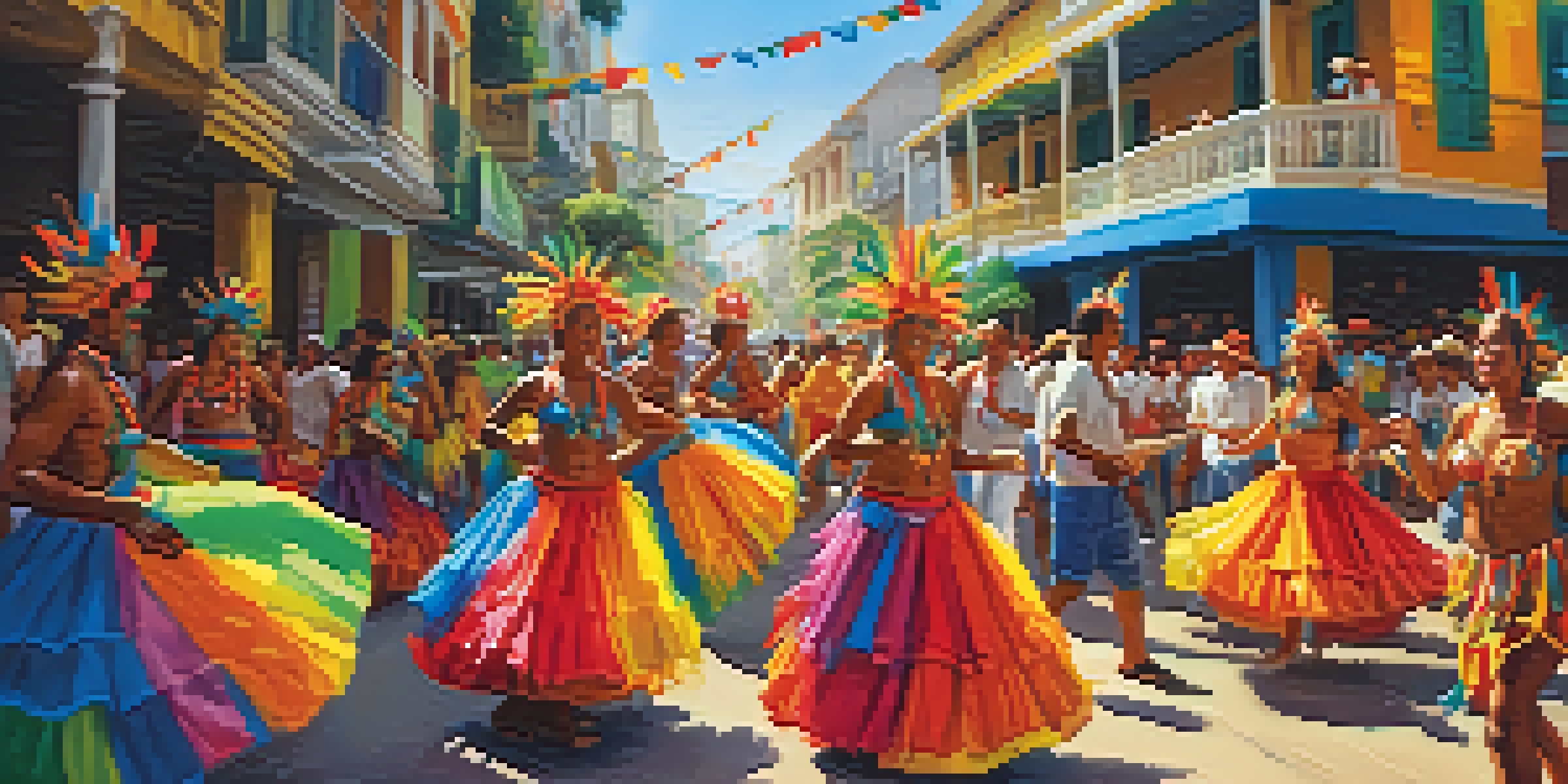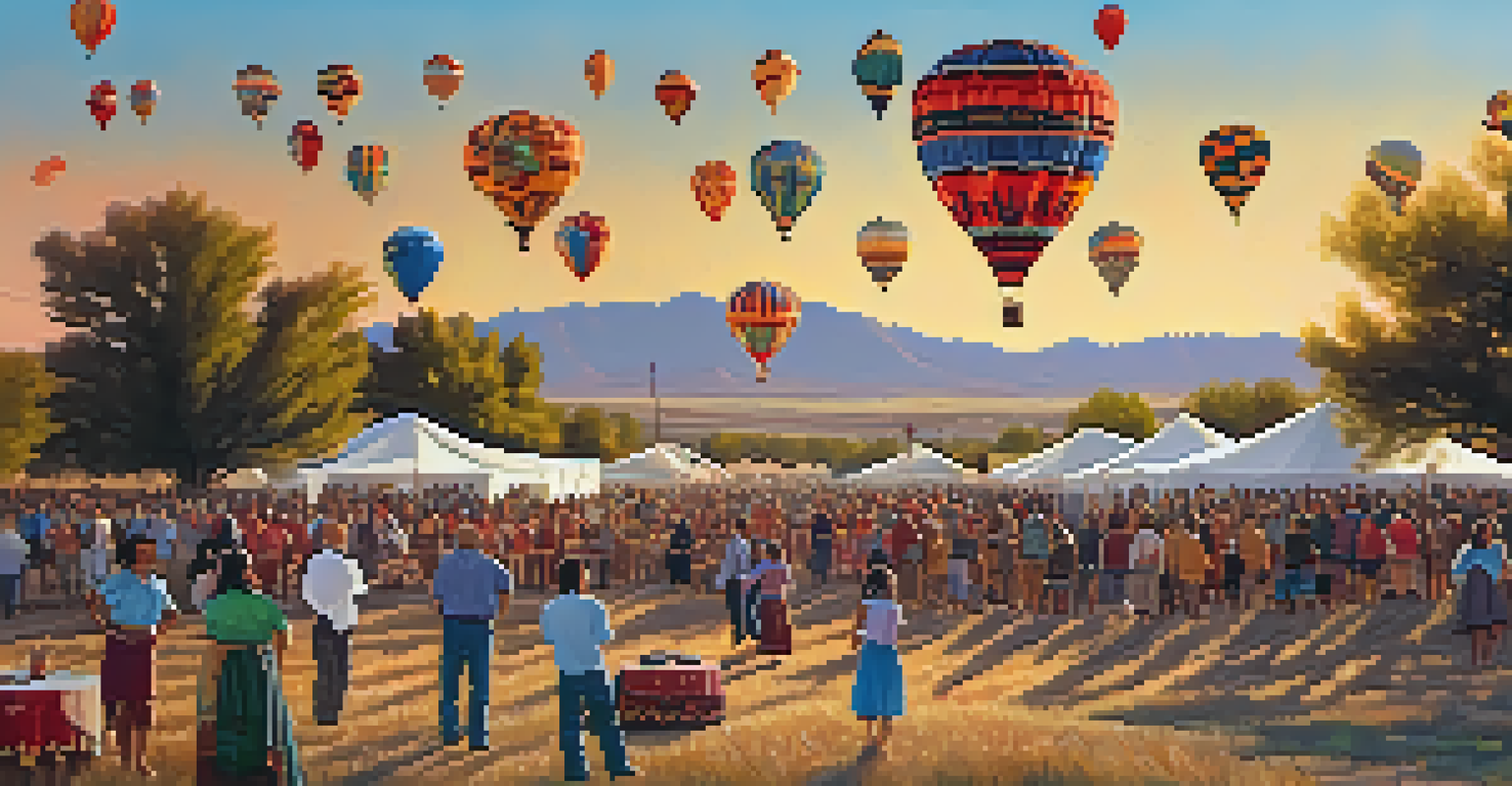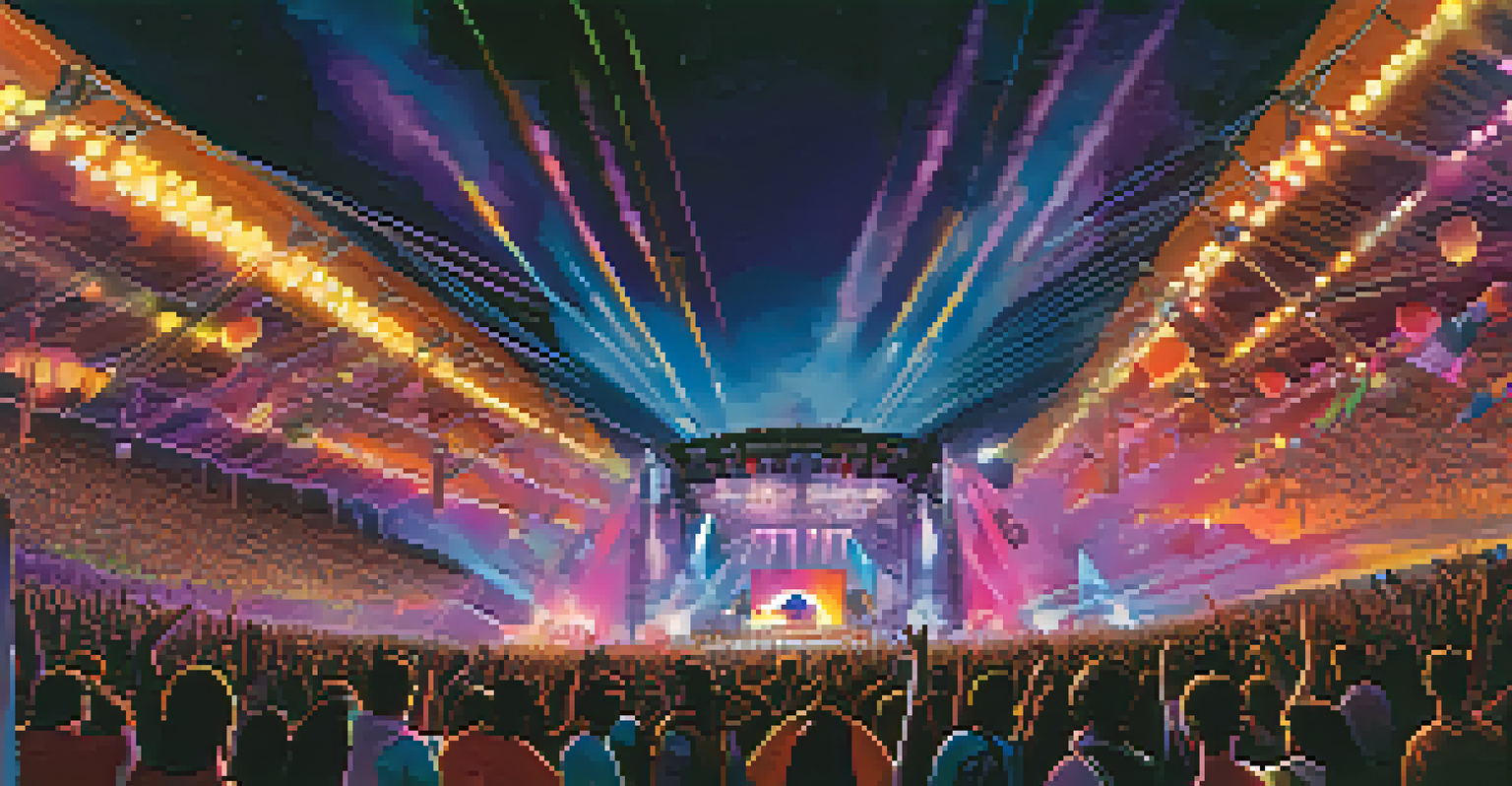Exploring the Role of Music in Cultural Festivals Worldwide

The Universal Language of Music in Cultural Celebrations
Music serves as a universal language, transcending borders and cultures. During cultural festivals, it creates a sense of belonging and connection among diverse groups of people. For instance, at festivals like Carnival in Brazil, samba music brings together locals and tourists alike, fostering a shared experience.
Music is the universal language of mankind.
This shared connection through music highlights the rich tapestry of human expression. It allows individuals to participate in traditions that may be different from their own, promoting cultural exchange. Think about how the lively beats of African drums at a festival can unite people from various backgrounds in joyful celebration.
Ultimately, music acts as a bridge, facilitating understanding and appreciation of different cultures. In this way, cultural festivals become vibrant melting pots of sounds, rhythms, and shared human experiences, enriching our global community.
Cultural Significance of Traditional Music at Festivals
Traditional music holds immense cultural significance, often reflecting the history and values of a community. At festivals, these musical forms are not just entertainment; they convey stories, rituals, and ancestral wisdom. For example, the folk music featured in the Albuquerque International Balloon Fiesta tells tales of Native American heritage and celebrates their connection to the land.

These traditional melodies and rhythms serve as a reminder of a community's roots and identity. They create an atmosphere where cultural pride flourishes, as participants engage with their heritage through song and dance. Observing how locals perform their traditional music can be a heartwarming experience, showcasing their love for their culture.
Music Connects Diverse Cultures
During cultural festivals, music fosters a sense of belonging and connection among people from various backgrounds.
Furthermore, this preservation of music helps pass down traditions to younger generations. By incorporating traditional music into festivals, communities ensure that their unique stories and customs continue to thrive in a rapidly changing world.
Modern Music Trends in Global Festivals
In recent years, modern music trends have begun to shape cultural festivals, blending genres and styles. Festivals like Coachella and Glastonbury showcase a mix of pop, electronic, and indie music, attracting diverse audiences. This fusion not only caters to varied musical tastes but also reflects the evolving nature of cultural expression.
Where words fail, music speaks.
The incorporation of modern music often introduces younger generations to traditional sounds, creating a dialogue between the past and present. For instance, a contemporary artist may collaborate with traditional musicians, resulting in fresh interpretations of classic songs. This innovative approach keeps cultural festivals dynamic and relevant.
Moreover, modern music trends can spark global movements, as seen with the rise of K-pop. The popularity of this genre at international festivals demonstrates how music can amplify cultural visibility, encouraging exploration and appreciation of different cultures worldwide.
The Role of Music in Community Identity at Festivals
Music plays a vital role in shaping community identity during cultural festivals. It often embodies the shared experiences, struggles, and victories of a community, allowing people to express themselves collectively. For instance, the music at the New Orleans Jazz & Heritage Festival celebrates the city’s unique blend of cultures and its rich musical heritage.
When community members gather to enjoy music at festivals, they reinforce their bonds and sense of belonging. The familiar sounds evoke nostalgia, reminding participants of their shared history and values. This connection can be particularly powerful; think of how a community might come together to celebrate their history through a song that has been passed down for generations.
Traditional Music Reflects Heritage
Traditional music at festivals conveys community history and values, helping to preserve cultural identity.
Additionally, music fosters a sense of pride in one's roots. As communities showcase their musical traditions, they not only celebrate their culture but also educate others, promoting understanding and appreciation of diverse backgrounds.
Music as a Catalyst for Social Change at Festivals
Music has long been a powerful tool for social change, and cultural festivals often serve as platforms for raising awareness. Artists use their performances to address social issues, inspire action, and foster dialogue. Festivals like the Global Citizen Festival highlight important causes, using music to engage audiences in meaningful conversations about change.
By bringing together artists and activists, these festivals create a sense of urgency and motivation among attendees. Music can amplify messages that resonate with the public, encouraging individuals to become advocates for social justice. Imagine how a powerful song performed at a festival can ignite passion and drive a collective movement.
Furthermore, the collaborative nature of festivals allows for diverse voices to be heard. Musicians from various backgrounds can unite to address pressing issues, creating a harmonious blend of art and activism that inspires change.
The Economic Impact of Music at Cultural Festivals
Cultural festivals, driven by music, can significantly boost local economies. They attract tourists, create jobs, and generate revenue for local businesses. For instance, the Edinburgh Festival Fringe not only showcases incredible performances but also injects millions into the local economy, benefiting hotels, restaurants, and shops.
Moreover, these festivals often encourage investment in infrastructure and community development. As cities host more music-focused events, they become more appealing to visitors and residents alike. This growth can lead to improved facilities and services that enhance the overall experience for everyone.
Music Drives Economic Growth
Cultural festivals not only celebrate music but also boost local economies by attracting tourists and generating revenue.
The economic impact of music at festivals extends beyond immediate financial benefits. It helps foster a sense of community and pride, as locals come together to celebrate their culture while also reaping the rewards of their hard work.
The Future of Music in Cultural Festivals
As we look to the future, the role of music in cultural festivals continues to evolve. Technology plays an increasingly significant role, with live streaming and virtual experiences expanding access to global audiences. This shift allows people who may not be able to attend in person to connect with the music and culture of festivals from afar.
Moreover, the blending of traditional and contemporary music is likely to continue, leading to exciting new genres and collaborations. As artists experiment with different sounds and styles, we can expect cultural festivals to showcase even more diverse musical offerings. This innovation keeps the essence of cultural festivals alive while embracing change.

Ultimately, the future of music in cultural festivals promises to be vibrant and inclusive. As communities and artists adapt to new trends and technologies, we can look forward to a rich tapestry of sounds that honor the past while celebrating the present and future of cultural expression.